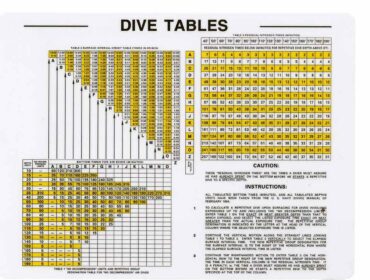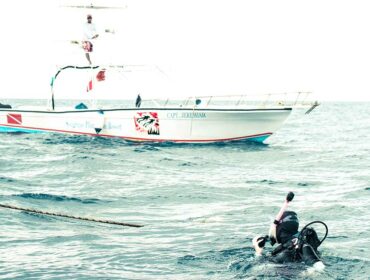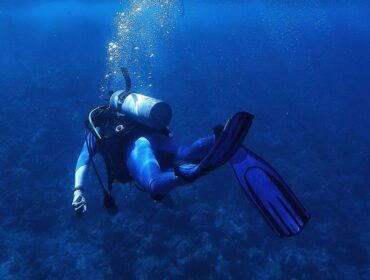DCS or Decompression Illness as it’s known is a scuba diver’s worst nightmare. Unfortunately, it’s one of the biggest risks of scuba diving and literally thousands of divers, at some point or the other in their diving history have experienced less life threatening symptoms of decompression sickness in the form of minor skin tingling or joint pain. Luckily the full blown blood curdling version of the same is rarer, but still a constant worry for most divers. Here’s a look at some of the best tips we’ve come across to avoid decompression sickness and minimize the risk of ever experiencing it ourselves:
- Plan,Plan, Plan. Never dive without a dive plan or a dive computer. The key to avoiding decompression is knowing the dive site, depths of the site and planning out a time-frame for the entire dive before hand and then obviously sticking to the dive plan is key to prepping for a dive. Plan conservatively, keeping a margin for changes and aspects of the dive contingent on environmental conditions or simply factors you hadn’t considered in the planning- for eg. water currents.
- Don’t dive drunk or high. It goes without saying that diving under the influence of alcohol or drugs is not a good idea. Besides the fact that you’d be intoxicated which could cloud your judgment in an emergency situation underwater, alcohol dehydrates a diver’s body, lowering the volume of blood in circulation. It also causes an increased heart rate. In other words, if you had nitrogen saturated blood, it would pump through your body at the faster rate. This in turn increases the risk of the nitrogen turning into the gaseous state of tiny bubbles, rather than breaking it down into smaller soluble states that allow it to escape the body and blood stream safely.
- Stay hydrated. For the same reason stated above, a well hydrated body can better cope with nitrogen saturation. Teamed with the fact that most times you are outdoors in the sun when diving and since you’re in and around water a lot you forget to drink enough, dehydration is the most common cause of DCS.
- Adhere to safety stops and a slow ascent rate. Never skimp out on a safety stop or deep stop when your dive computer or dive table indicates one. It’s even better to do a slightly longer stop than indicated to be on the safer side. Ascent rate too as most divers are warned in the very beginning is crucial when it comes to DCS. A generally accepted safe ascent rate by scuba organizations and most dive computers is 9m/30ft per minute. More simply put for divers without a dive computer (which we don’t recommend) is to follow your smallest air bubbles.
- Don’t fly immediately after diving. The dilemma usually crops up, cos as divers we are always keen to squeeze in those few extra dives just before we have to make the most of our diving trips, after-all you just heard the other divers spot a manta ray at a particular dive site, what if it’s still around this afternoon? or you really wanted to have one last look at the amazing Electric Flame Scallop you’ve never even heard of before…whatever the reasons, it’s important to keep a gap of 12 hours after completing a single dive or 18 hours when doing multiple dives and where possible 24 hours before flying. Truth of the matter is that ascending to an altitude immediately after diving causes a significant risk for decompression sickness.
That said, there are no dive tables or dive computers that can guarantee 100% a diver will not get DCS. But if a diver learns how to calculate dive time properly, stays within safe depth limits and ascends slowly from every dive while taking recommended decompression stops, they can lessen their chance of getting bent.
When planning multiple dives in a day, do your deepest dives first and then shallower dives. Always carry out a 5 minute safety stop, even on a no decompression dives to be on the safer side. Avoid flying 24 hours before or after diving.
ALWAYS plan your dive and dive your plan! Dive safe!




